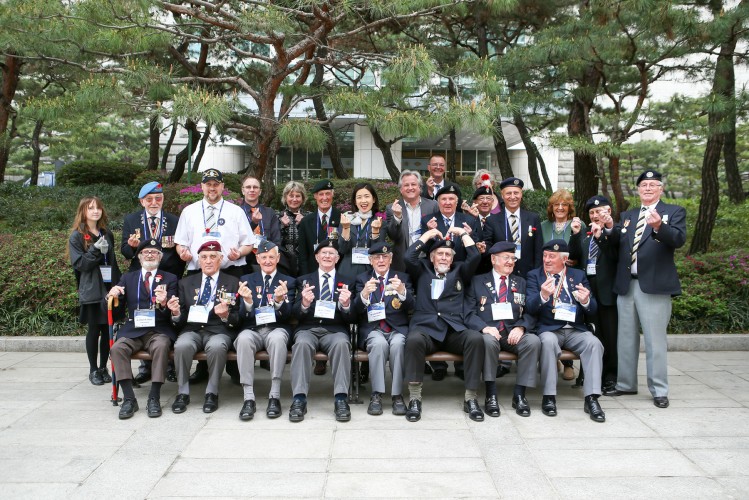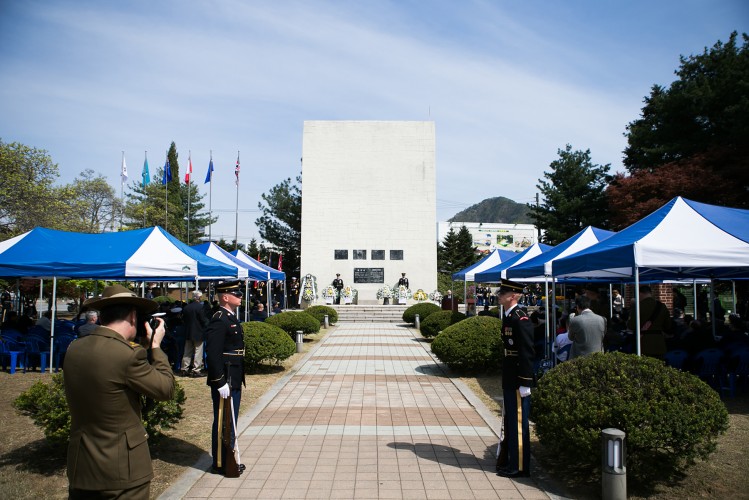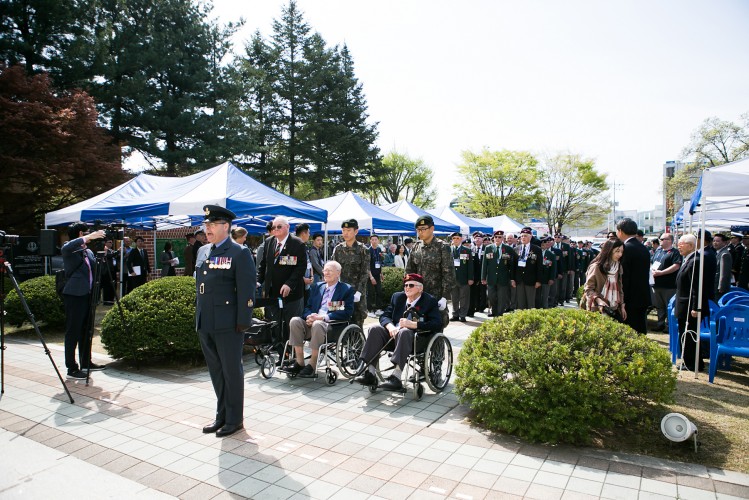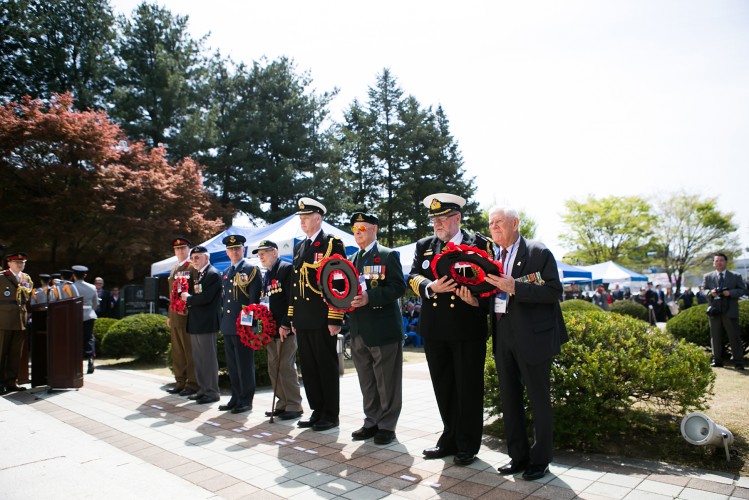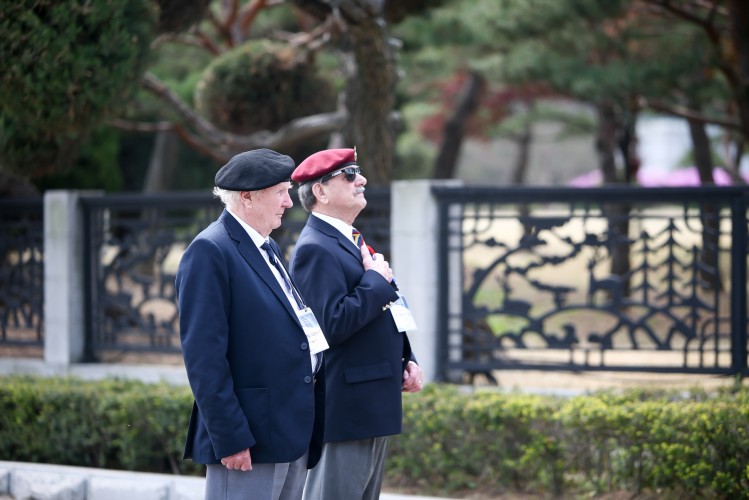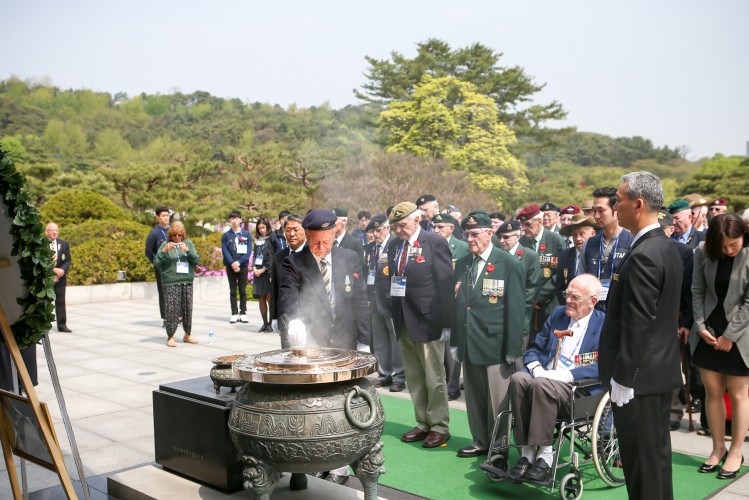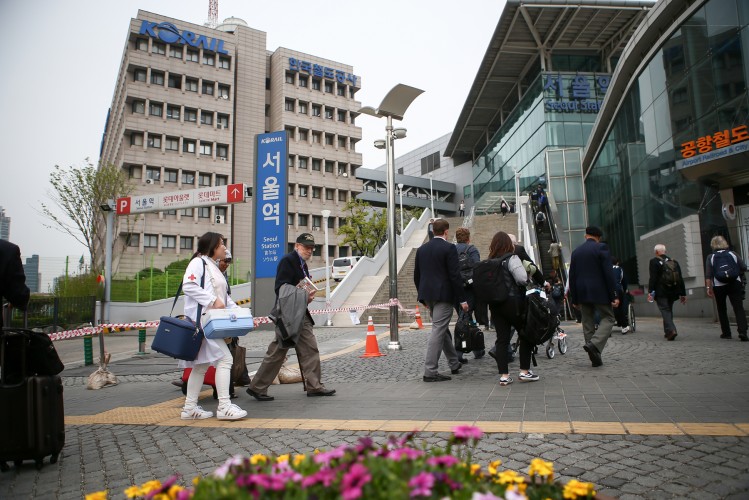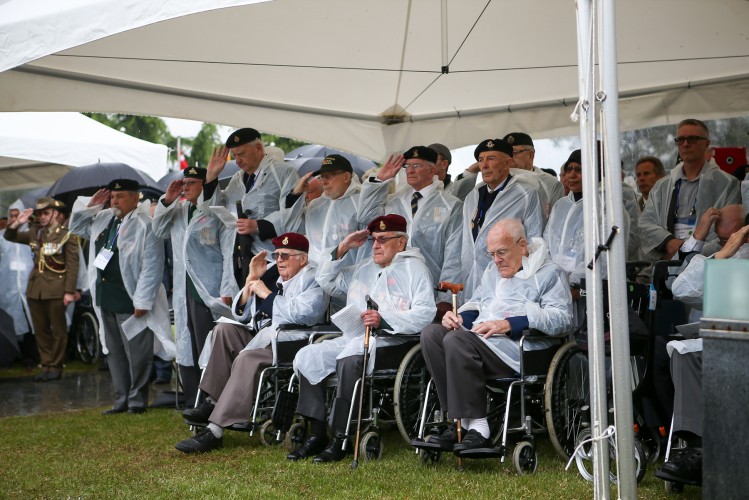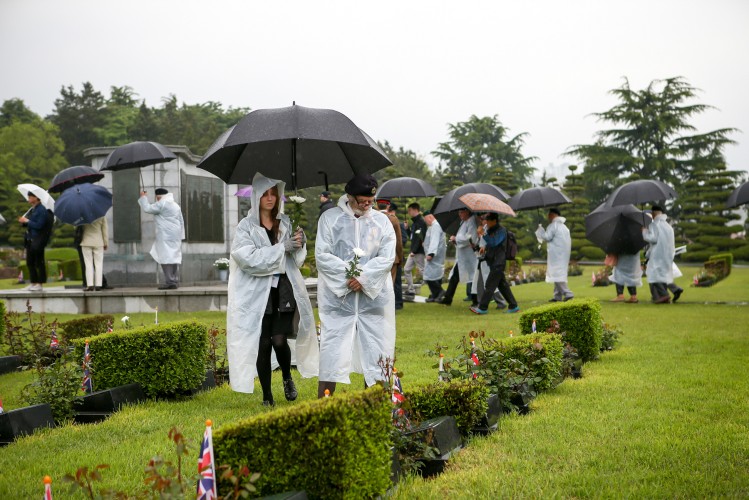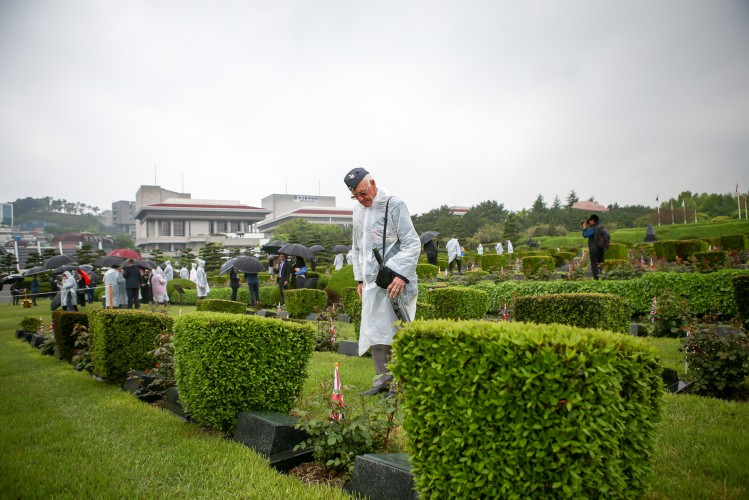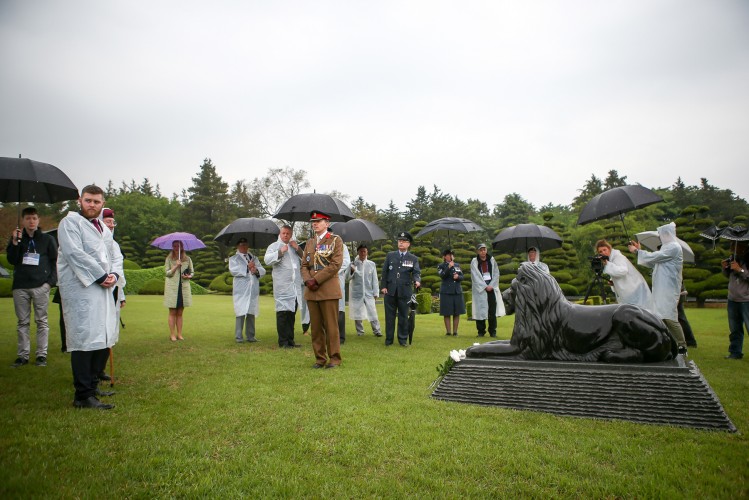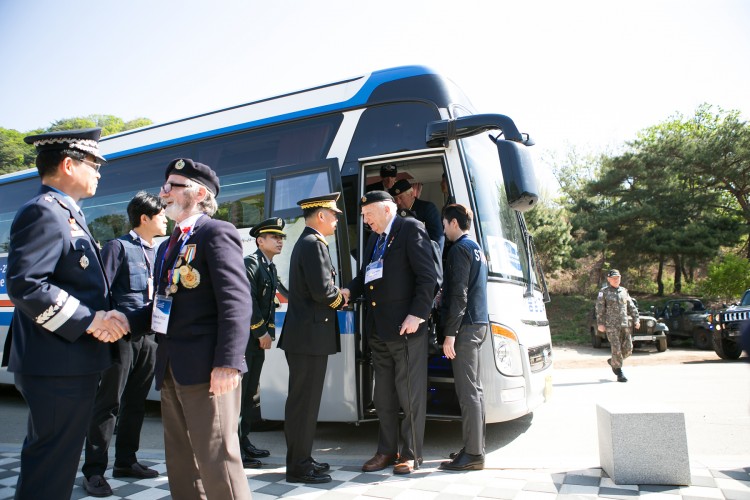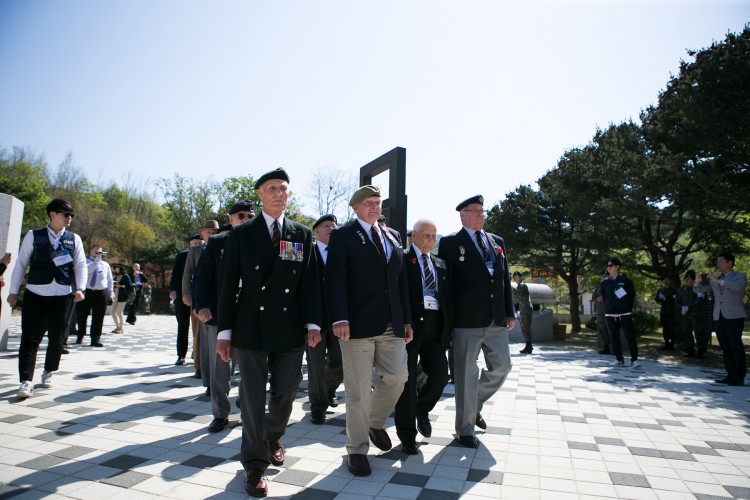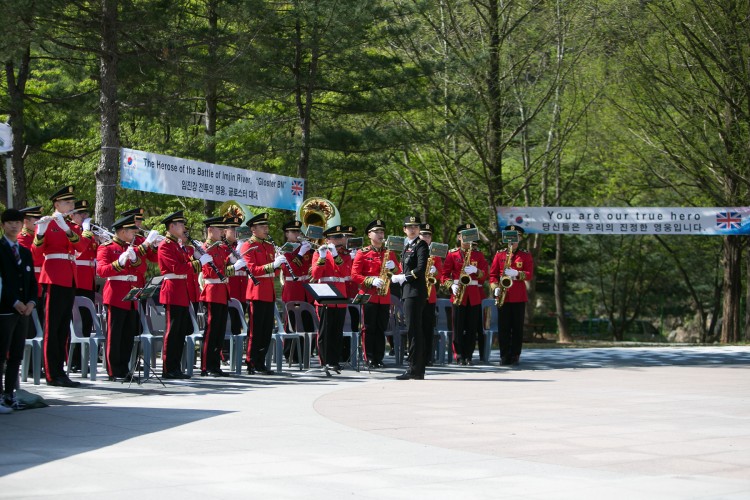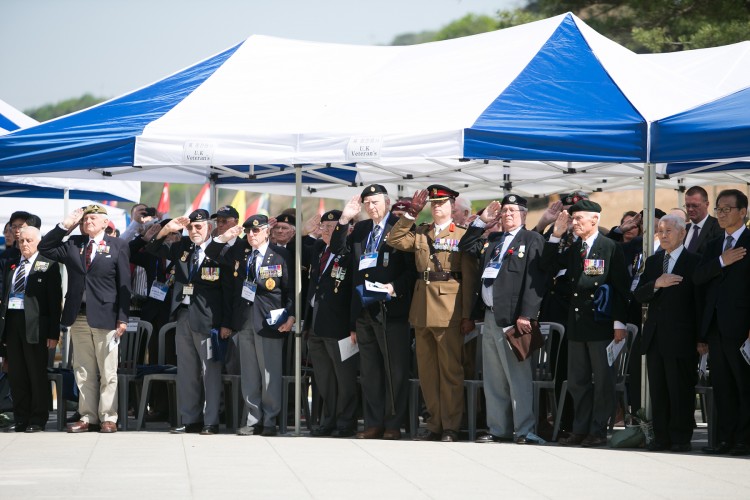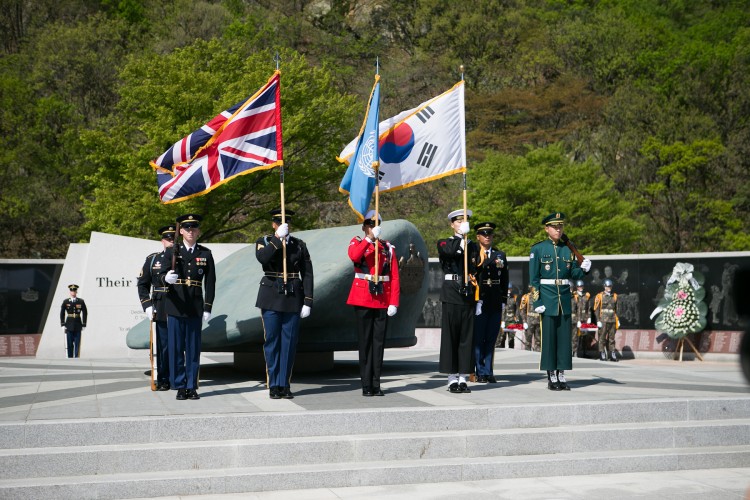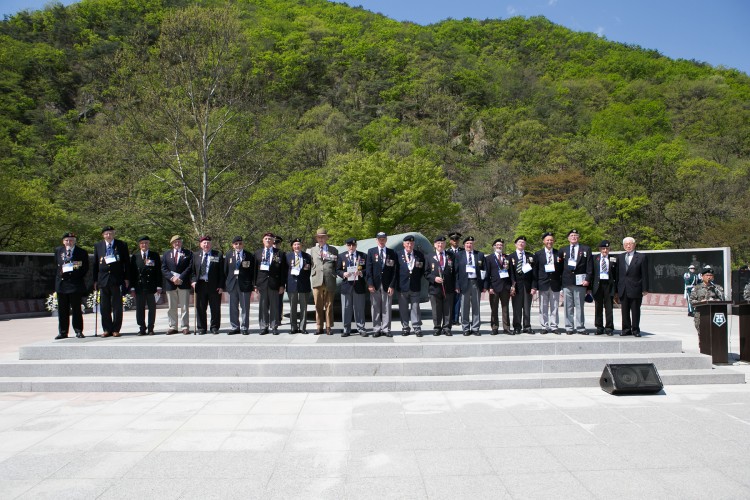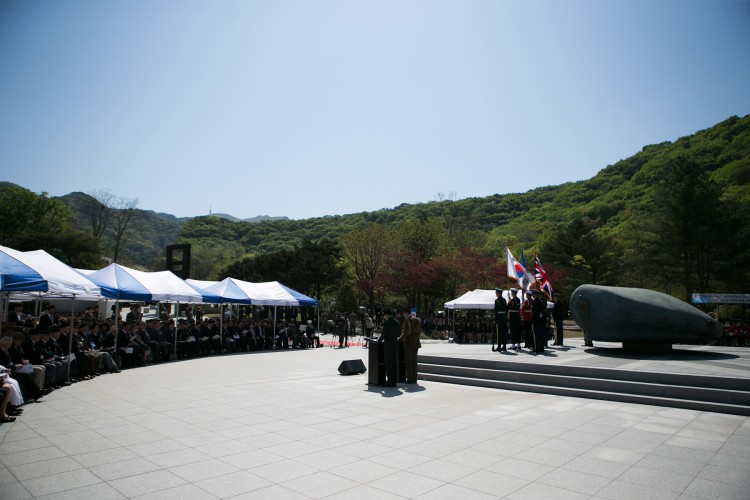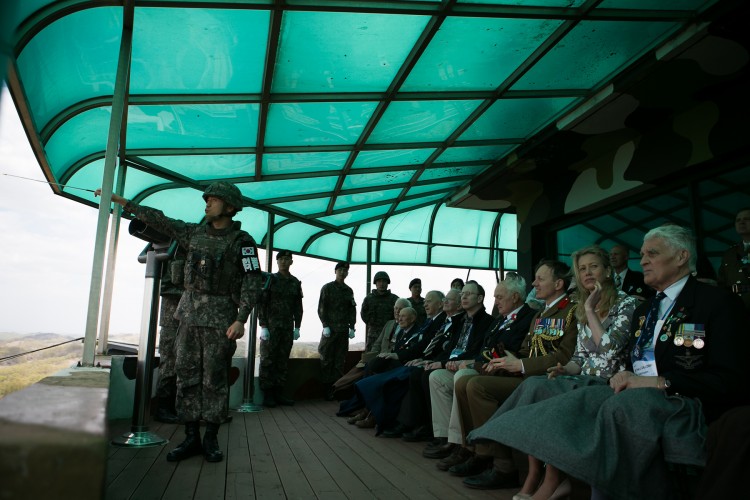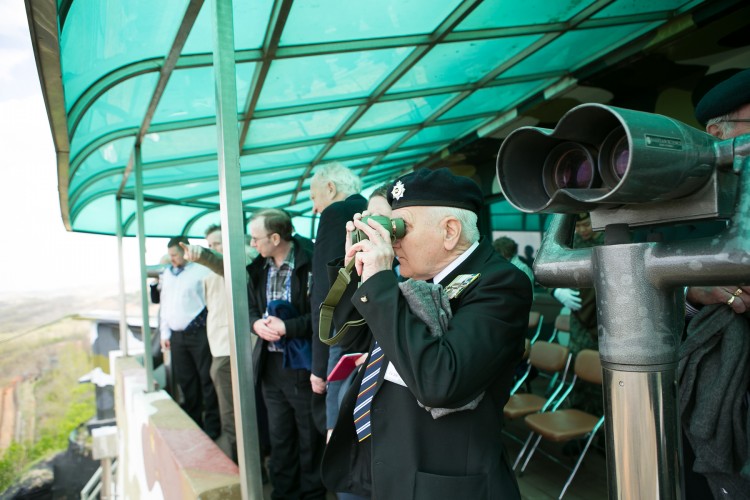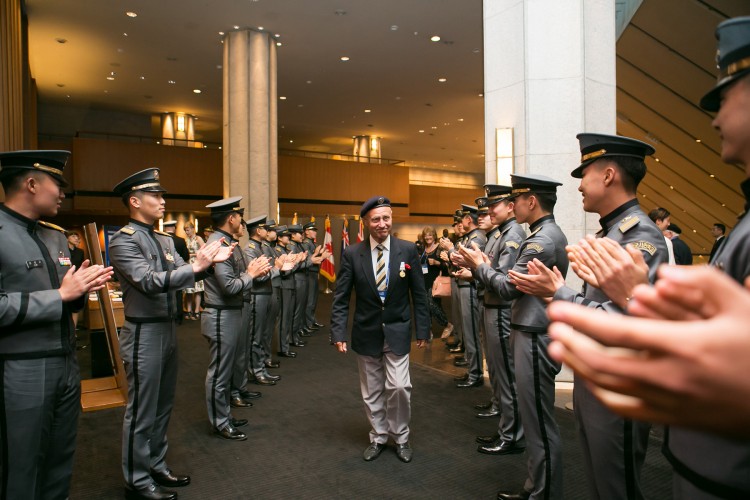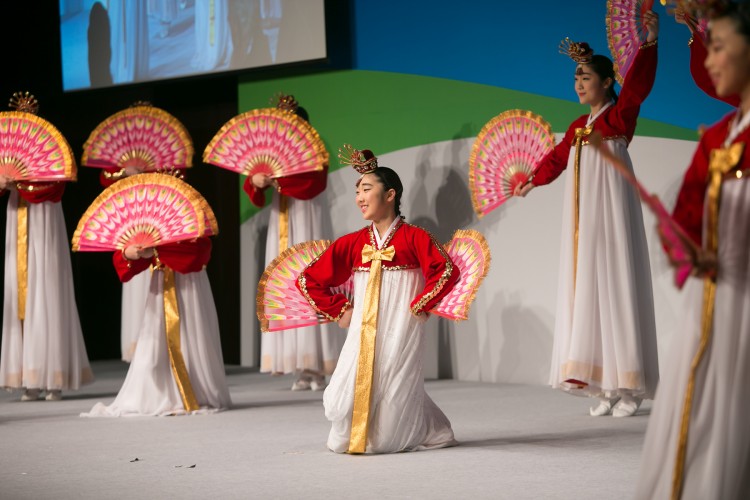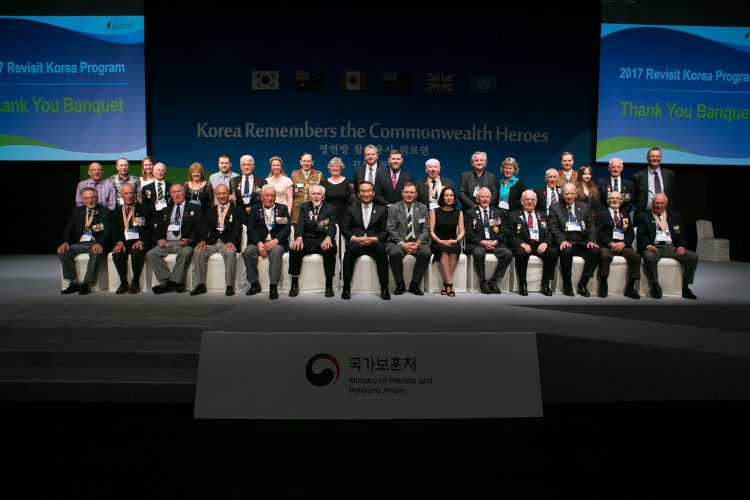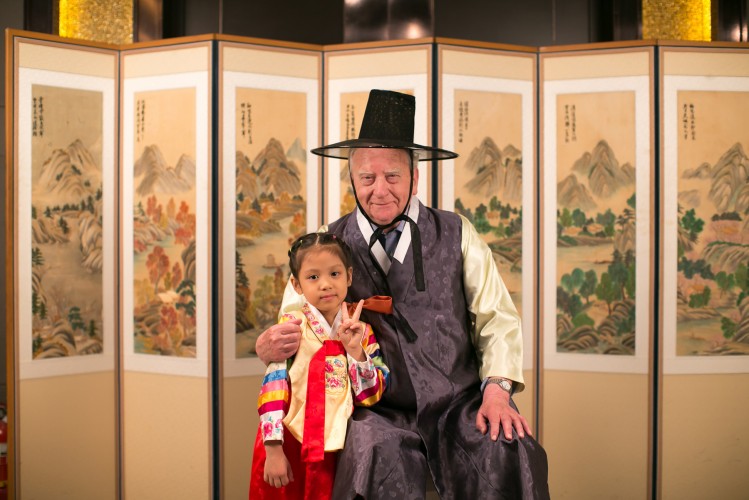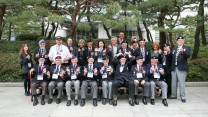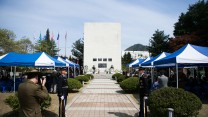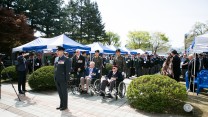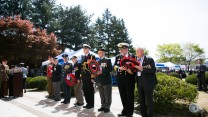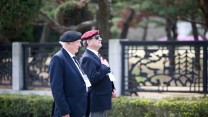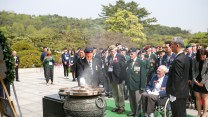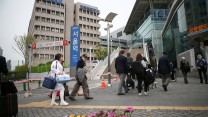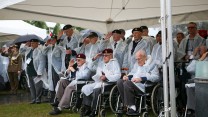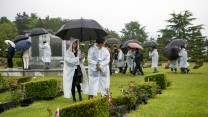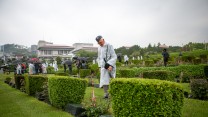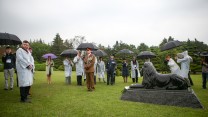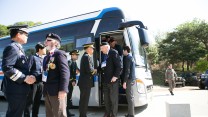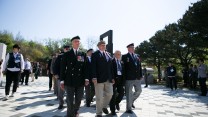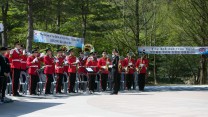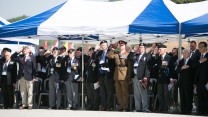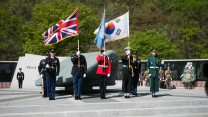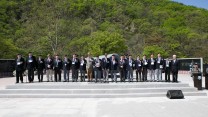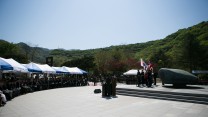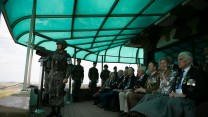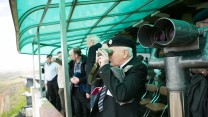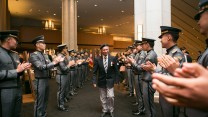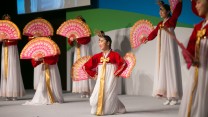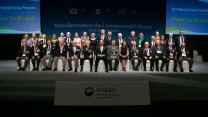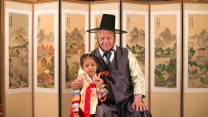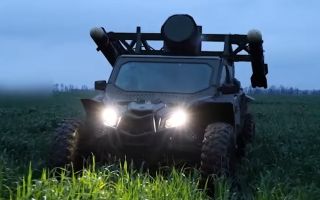The Korean War, my father and me - discovering my own family's involvement
Each year South Korea runs a special 'Revisit Programme' for veterans from the 21 UN allied nations that fought in the so-called Forgotten War - which organisers say is an opportunity "to witness how Korea enjoys peace and prosperity thanks to their noble sacrifices and dedication".
In 2017, I joined the official veterans' trip to South Korea as my father, Ben Moore, was one of those that had fought in the conflict.
It was an incredible experience, especially as my Dad died the following year, and I feel very fortunate that I got the chance to see where he had been and talk to him about his time there.
Growing up, I knew very little about the Korean War - and next to nothing about my own father's involvement in it.
There had been things about my Dad that I found intriguing, like the tight scar that stretched across his back from where I was told he had been shot, or the fact he was strangely delighted that I happened to be born on 24 October which is United Nations Day (a day few people know) - later I found out it was a UN mandate that troops were sent to Korea under, so no doubt poignant to him.
However, it was the discovery of his uniform, hidden in a trunk in the loft, that sparked a conversation.
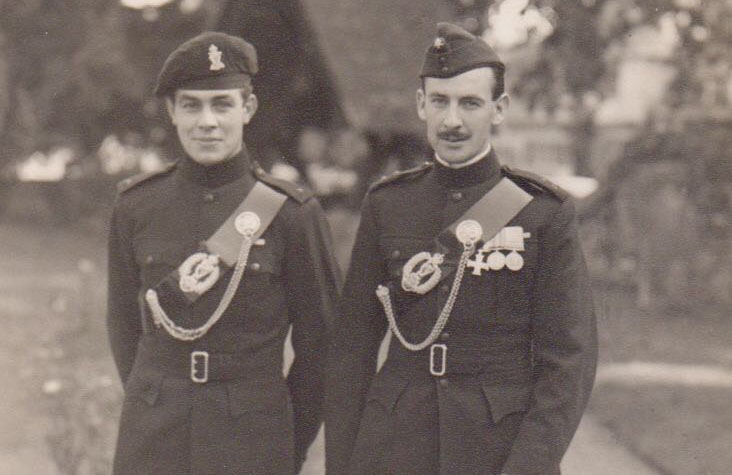
My Dad served as a Second Lieutenant with the Royal Ulster Rifles, before joining the Royal Norfolks in Korea as part of his national service in 1952.
He was based on the banks of the Imjim River, which had seen fierce fighting the year before when the 'Glorious Glosters' held up the advance of 10,000 Chinese troops.
Dad had been living in a foxhole, with just enough room for a bed, near the 38th Parallel.
"For quite a long time, this particular part of the line had been fought over and was very heavily mined," my Dad recalled.
"You knew the Chinese were looking at you... You quickly learnt to keep your head down."
My Dad's time in Korea was cut short when he was shot in the chest during a night patrol.
A claim to fame of his was that he was awarded - albeit temporarily - a Purple Heart while he was recovering at an American field hospital.
He recalled waking up to find a US Major General presenting the decoration to him, only for it to be quickly retracted when another senior officer realised he was, in fact, a Brit.
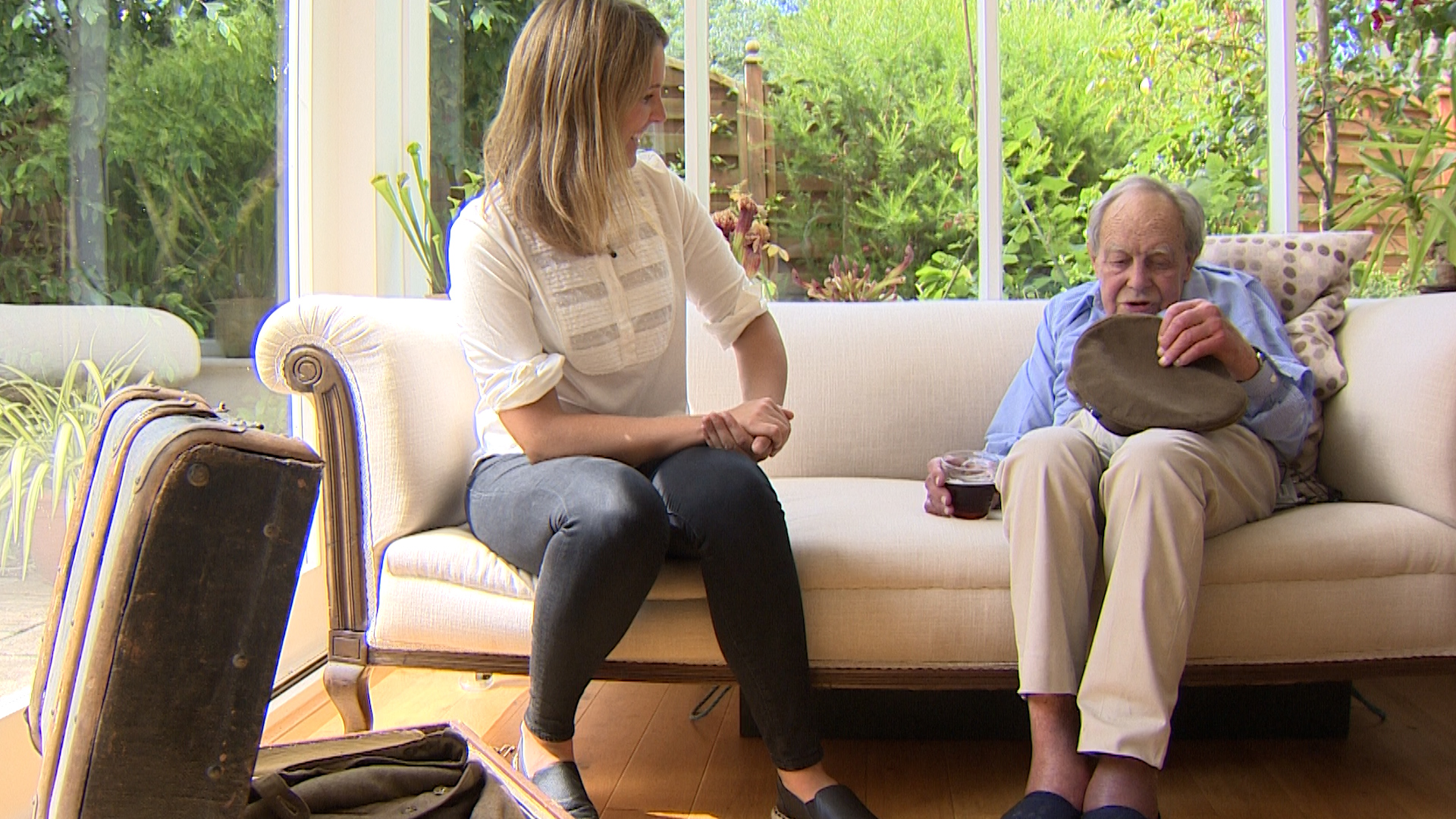
Throughout our conversations, my father always stressed the kindness of the Korean people.
He spoke about a time he was on recce for a battle camp in the hills near the 38th Parallel when a Korean man approached him with some fruit, which he split in two.
"He saw a soldier who was bloody thirsty and could help... I thought 'you kind, kind man'."
It was this kindness and gratitude that I saw first-hand while on the Korea Revisited trip. Frequently the veterans would be stopped in public places by people wanting to shake their hands and get selfies - they were genuinely celebrities.
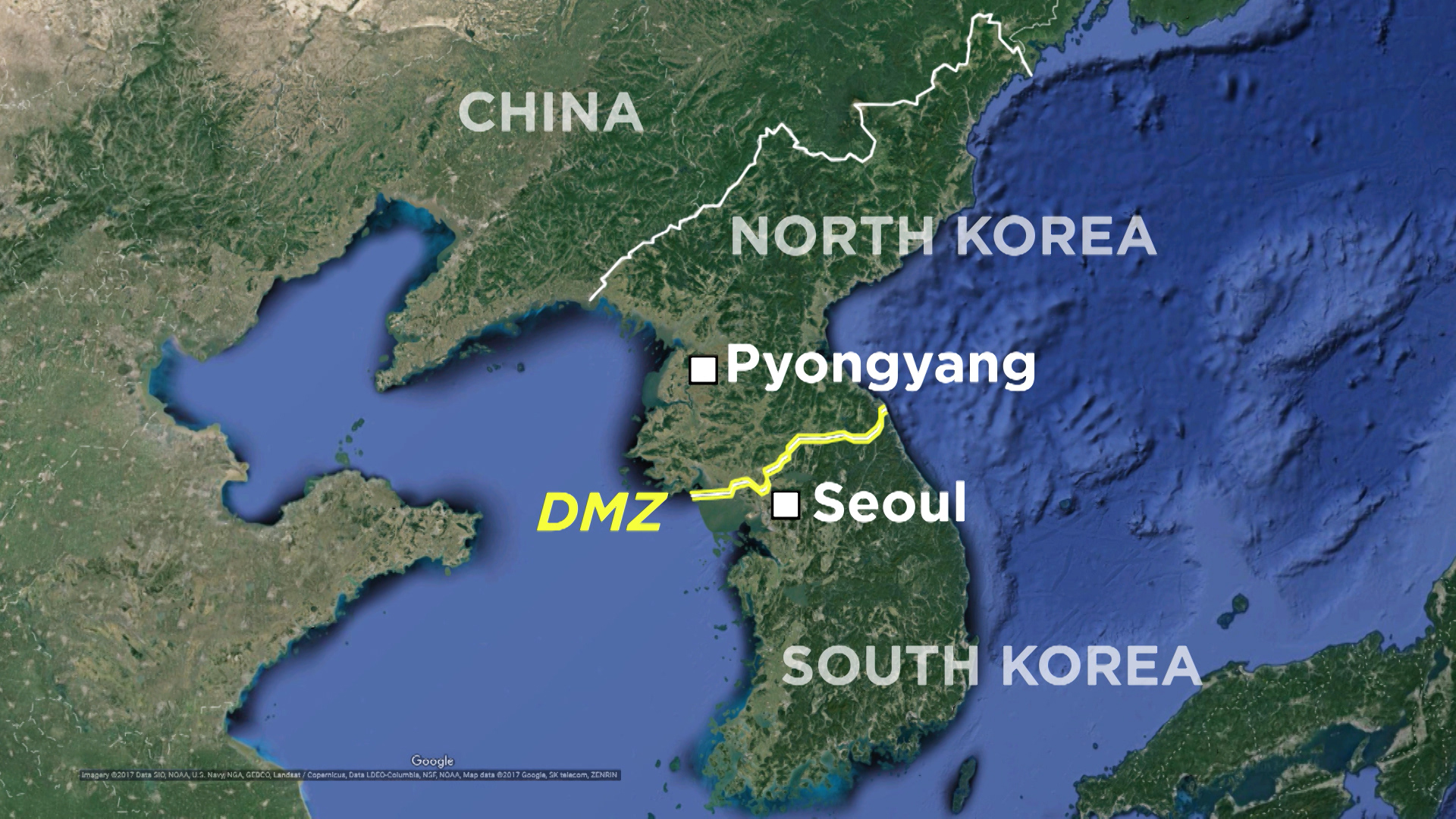
The conflict in Korea is often called the 'Forgotten War' in the West, but more British troops died there (around 1,100) than in the Falklands, Iraq and Afghanistan combined.
The war started on 25 June 1950, when the North, under Kim Il-sung, invaded the South.
British involvement in the conflict came under the umbrella of the United Nations Command (UNC).
It was the first major test of the UN, with the resolution calling upon member states to repel aggression from the North only passed because Russia (then the Soviet Union) boycotted the council in protest.
Seventy years ago, on 27 July 1953, an armistice was signed by the American-led UNC and the North Korean and Chinese militaries at the "truce village" of Panmunjom.
It put an end to the fighting, but not the Korean War itself - as a formal peace treaty was never signed, leaving the Korean Peninsula still technically at war.
To this day, Korea remains divided by a 155-mile-long strip of land called the Demilitarized Zone (DMZ) that separates the Democratic People's Republic of Korea (North Korea) from the Republic of Korea (South Korea).
The legacy of the unresolved 'Forgotten War' remains increasingly pertinent today as tensions on the peninsula continue and North Korea progresses with its nuclear ambitions.
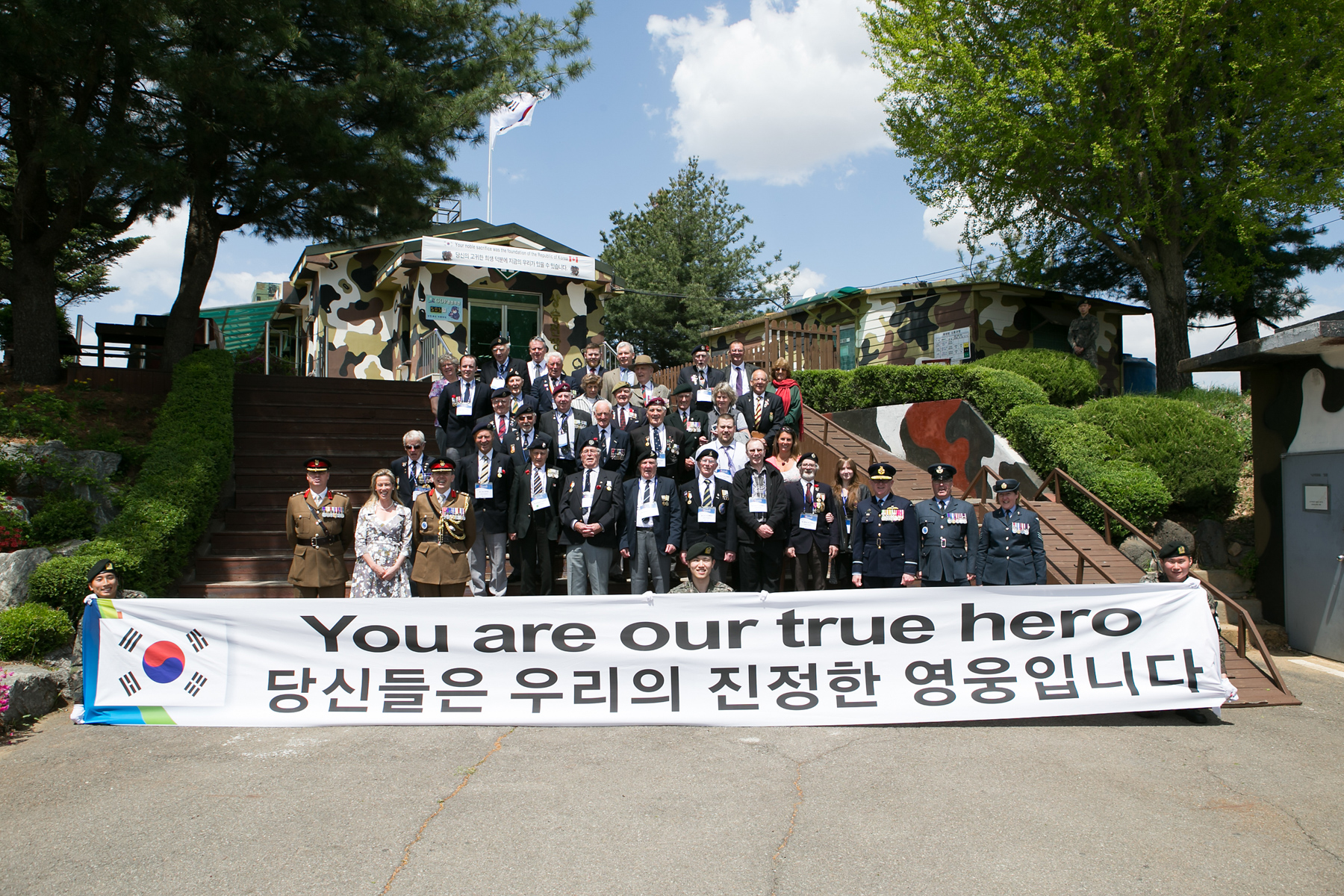
It was 65 years after my Dad deployed to Korea when I was given the opportunity to follow in his footsteps.
In April 2017, I joined 16 veterans from the UK and their families as they made the 5,500-mile journey back to the peninsula.
Every year, the South Korean government organises and subsidises the cost for veterans, who are now in their 80s and 90s, to return for a week-long trip to the peninsula where they had once served.
The itinerary involves seeing the Seoul National Cemetry and National War Memorial, as well as visits to battle sites relevant to each participating nation, all culminating with an awards banquet hosted by the Korean Minister of Patriots and Veterans Affairs.
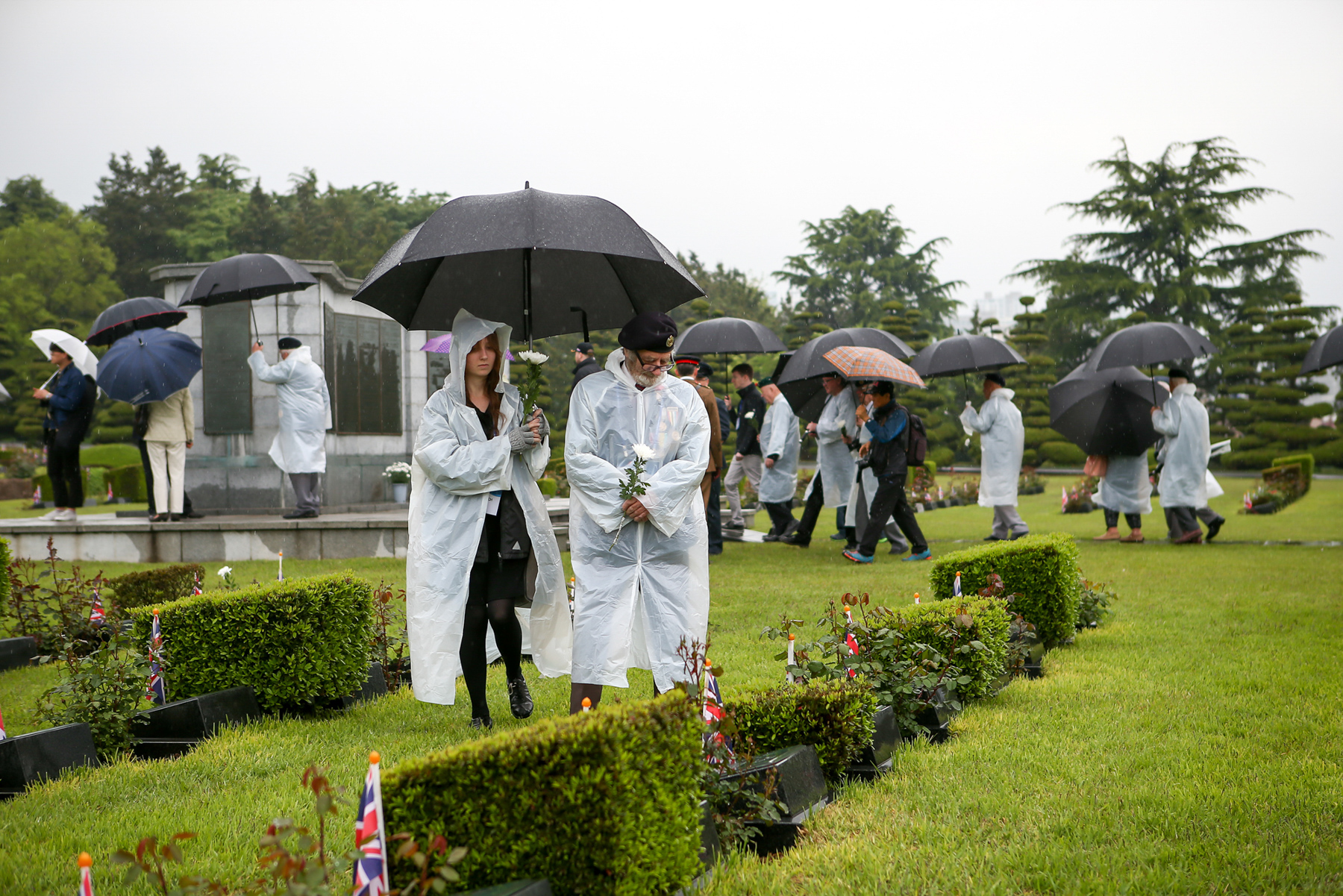
The Revisit Korea Programme is part of the country's unique way of honouring those that have fought for it.
Since the programme began in 1975, more than 30,000 veterans have returned.
Separate programmes are run annually for US veterans and there are also peace camps for grandchildren and visits for bereaved families.
South Korea is committed to honouring its veterans as, without their help, the country would never have transformed itself from major aid receiver to major aid donor - a legacy achieved in just one generation.
Its economy has grown so successfully, in fact, that South Korea is considered one of the four 'Asian Tigers', a grouping of highly developed and industrialised nations in the region.
Not bad for a country that North Korea, officially the Democratic People's Republic of Korea, claims it defeated during the Korean War.
For more information on the Korea Revisit programme, contact Charlotte O’Kane: [email protected]
